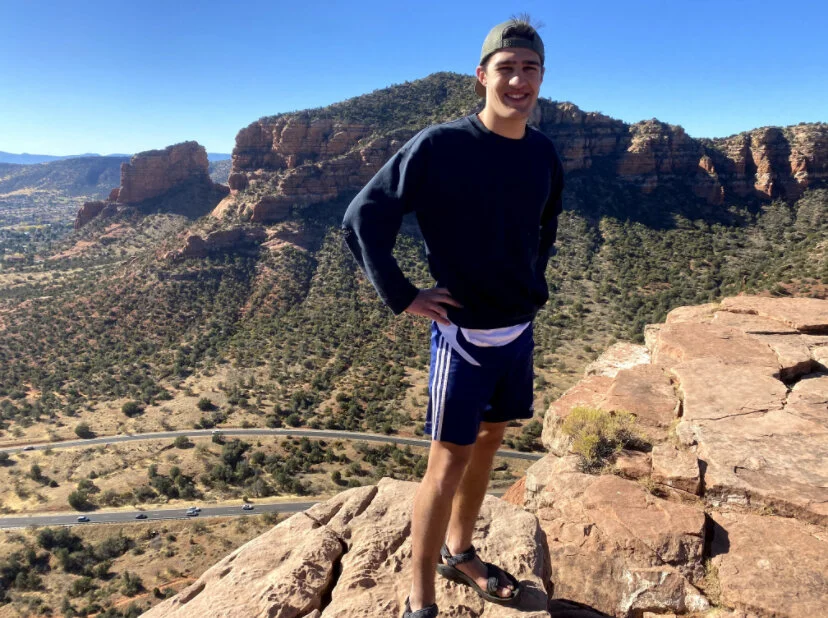HUMANS OF TYSON 2021
Evan Lundstrom
(he/him)
Tyson Undergraduate Fellow
Are you inspired by science?
I'm definitely inspired by science. I grew up in a very science-friendly household. My dad is a scientist. I was interested in the natural world as a kid. I was really into dinosaurs for a long period of my childhood – I still think dinosaurs are really cool – but I was obsessed with them. I had a whole dinosaur-themed birthday party and everything.
But I think what really inspires me about science is that it helps me feel more connected to the natural world. I'm fascinated by learning interesting things about cool animals. I watched My Octopus Teacher a couple of weeks ago. They talked about how each octopus limb has independent control of itself, even though the octopus also controls itself. Nature is so strange in a very beautiful way. It's freakish and I am fascinated by it! And science is a really good way of learning more about that. The first step in the scientific method is coming up with a question, a hypothesis. You need some sort of creative, motivating drive to get you to ask that initial question. That basic level of human curiosity is such a driving force behind science. Curiosity, that fascination with nature is something that really speaks to me and motivates my scientific questions.
“Nature is so strange in a very beautiful way and I am fascinated by it! Curiosity, that fascination with nature is something that really speaks to me and motivates my scientific questions.”
How do you see science and social change fitting together?
One common motivator for people doing science is to solve problems, which is so important because we have so many science-related problems in society, such as the ecological crisis and the climate crisis, but also broader health issues that science can address. In that sense, social change is a driver of science. I think of science as a tool to implement the social changes that we as a society decide are in our best interests. Science can also guide our decisions in terms of what we think is in our best interest.
But science is a tool. It can only go so far. Science can help us understand a problem, how bad it is, the details about it. But it can’t tell us whether or entirely how we should solve it. That decision has to come from outside the realm of science, from the social world. That social decision is a crucial aspect of actually enacting positive change in the world.


